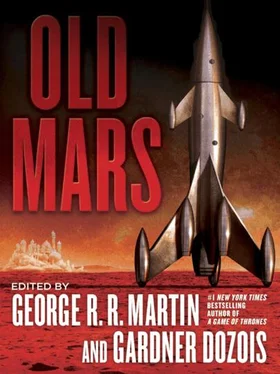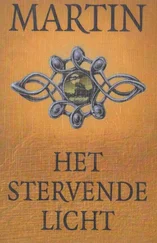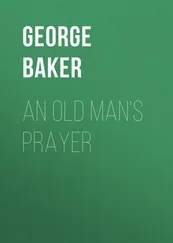“P-prisoner secured, m’lord.” The voice belonged to one of the prison’s harshest and most brutal wardens. What could reduce this man to stammering servility?
“Leave us.” A cold, brusque voice, one used to immediate compliance. It had an accent Kidd couldn’t place. Dutch?
“M’lord?”
“Leave us. Alone.”
The warden gulped audibly. “Yes, m’lord,” he whispered.
The hand released Kidd’s head and two sets of feet shuffled out of the cell. A moment later, the door creaked closed, shutting more quietly than Kidd would have thought possible.
A single torch remained, and the sound of one man breathing.
Kidd raised his head.
The stranger was tall, over six feet, and the dark cloak that covered him from head to toe could not disguise his imperious bearing. He held an embroidered handkerchief to his nose, no doubt soaked in vinegar to combat the prison’s stench.
“To what do I owe the privilege, m’lord?” Kidd rasped, masking his terror with ironic courtesy.
The man pushed back his hood. “Surely an investor can pay a visit to his client?”
For a moment, Kidd failed to recognize the face, with its proud black eyes and its hard, humped beak of a nose. Then he gasped and ducked his head. Though they’d never before met in person, he’d seen that face in profile on a thousand coins. “Your Majesty,” he whispered, though cold anger burned beneath his ribs.
William III, King of England and Ireland, also William II of Scotland, placed the vinegar-soaked cloth again beneath his nose. “My time here is short,” he said, his voice muffled. “Even men as deeply stupid as my beloved advisers cannot be counted upon to miss my absence for long. So I must come directly to the point.” He drew the cloth aside, his dark eyes fixing Kidd’s. “I am here to offer you a pardon.”
At first, Kidd could form no reply. Surely this was only a dream? Or a cruel jape, intended only to deepen his suffering? Hope warred with anger and disbelief in his breast. “Your Majesty?” he managed.
“You heard me,” the king snapped. “I will spare your filthy, piratical neck from the noose my Parliament has woven for you from your own ill-considered words.”
Kidd matched the king’s level stare. “I but spoke the truth.”
“The truth is nothing against politics! And were it not for politics, I’d never find myself here in this stinking rathole with you.” The king sighed. “You are troublesome, Kidd. You and I both know you are no pirate, but my advisers would see you swing for the damage you’ve done your backers’ reputation. And with your impetuous bravado and your damned honesty, you’ve made so many enemies I could never defend you in public without losing the whole Whig party. But for all your faults, and for all the stories your enemies have spread about you, you’re too good a captain to waste on the gibbet. So, again, I have come to offer a pardon.” A small strange smile played upon his lips. “But if you accept this pardon, you will be required to undertake a certain charge for me. When you hear the charge, and the conditions, you may wish to decline this offer of clemency.”
“What charge and conditions,” Kidd snarled through gritted teeth, “could make a man esteem the hangman’s noose above a king’s pardon?”
Infuriatingly, the smile broadened. “I desire that you plan, outfit, equip, crew, and carry out an expedition to the planet Mars.”
Rage flared in Kidd at the king’s callous jest, but he held his tongue; he did not even allow the contempt he felt to show on his face.
This prudence was a new thing for Kidd. Even one year ago, freshly detained on false and libelous charges, he would have railed and spat and fought at such a ridiculous slight. But capricious imprisonment had taught him caution.
He paused and gave due consideration to the words of a king—a king not known for levity or insanity. This was a new century, a time of exploration and discovery and wonders. With the New World now nearly as well mapped as the Old, men were setting out in search of even newer worlds. Balloons were rising from all the capitals of Europe, and after Dampier’s successful circumnavigation of the Moon, a journey to Mars, though outlandish, was not entirely inconceivable.
“I’ve heard the charge,” Kidd said, swallowing his anger. “And the conditions?”
“Primus,” the king said, holding up one finger, “you may not disclose the terms of the pardon to any man, upon penalty of death. Secundus , you will be placed under the command of the physiologer John Sexton. You will obey his orders, serve him faithfully, and remain within one hundred feet of him at all times until the successful completion of the expedition, under pain of death. Tertius , you will be held personally responsible for the safety of the said Sexton. Should any harm whatsoever befall him, you will suffer death.” He put down the hand with its three extended fingers and crossed his arms on his chest. “On the other hand, if you should somehow manage to return to London with your own head and Sexton’s intact, you’d have the gratitude of a king. Perhaps even a baronetcy.”
Kidd considered the king’s words, considered them most seriously. He knelt in chains, in the darkest cell of the worst prison in England, faced with a choice between an impossible task—an insane expedition, from the attempt of which neither he nor any man he might recruit would be likely to return—and certain death upon the morrow.
And he began to laugh.
Rough, hacking chuckles burst from a throat left parched and ruined by a year of prison food, prison water, prison air. The king took a step back, the white cloth held tight against his nose, as though he feared Kidd might somehow burst his manacles and attack the royal person.
“I accept your pardon, Your Majesty,” Kidd gasped when the fit had passed. “I never could pass up a challenge.”
Kidd strolled down Salisbury Court, heading for an appointment with Yale, the chandler whom he had engaged for water, cordage, and comestibles. Five weeks out of prison, it was still a wonder to walk unencumbered, to move for more than ten feet without encountering a wall, to breathe air untainted by the exudations of a thousand condemned prisoners.
Sexton, the physiologer, walked with him. A lean, pale-eyed man of twenty-eight—half Kidd’s age—he was not only a member of the Royal Society and a lecturer at Gresham College, but had also invented a novel method for projecting the surface of the spherical Earth onto a flat paper map and discovered two new species of beetle. His theories on interplanetary shipcraft and navigation were, apparently, very highly regarded by his philosophic peers.
And, for all his brains, he had the common sense of a turtledove.
Though Kidd’s strength was improving, he still walked with a stick. But despite this handicap, he made better speed than Sexton, who paused periodically to converse with strangers, peer curiously at unusual bits of stonework, and scribble notes in a small notebook. The man was like a jackdaw—always darting hither and yon, his attention drawn to any shiny object, and easily startled into flight.
Kidd had originally thought that the secret terms of the king’s pardon compelled him to remain close to Sexton to prevent him, Kidd, from escaping. He now believed that the real reason for this requirement was so that Kidd could protect Sexton from being run down by a coach, falling into a canal, or simply forgetting to breathe.
“Please, Dr. Sexton,” Kidd called over his shoulder. “We are already late, and Mr. Yale is a busy man.”
“Just a moment, Mr. Kidd,” Sexton replied, stooping to inspect a weed that grew in the crack between two foundation stones of the building they were passing.
Читать дальше












